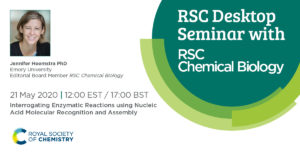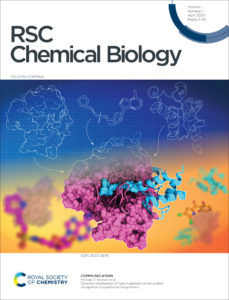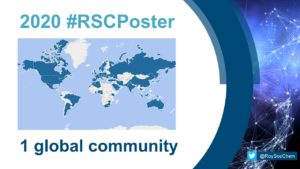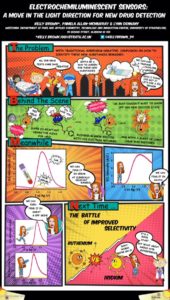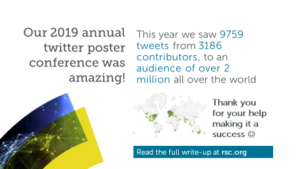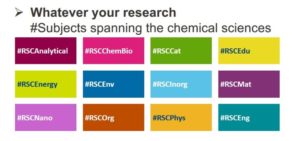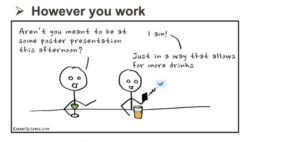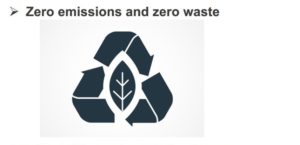The RSC Twitter Poster Conference is back #RSCPoster! Click here for the 2019 edition
9:00 (GMT) Tuesday March 6th to 9:00 (GMT) Wednesday March 7th
The Royal Society of Chemistry Twitter Poster Conference is an online event held entirely over Twitter to bring members of the scientific research community together to share their research, network and engage in scientific debate.
Following on from the success of the previous events, we are excited to announce that the 4th RSC Twitter Poster Conference will be held from Tuesday March 6th (9am GMT) to Wednesday March 7th (9 am GMT).
How do I take part?
During the event simply tweet an image (e.g. JPEG) which will be a digital poster summarising your research along with #RSCPoster, the most appropriate subject area hashtag and the title of your work.
|
The hashtags required are:
Analytical – #RSCPoster #RSCAnalytical
Chemical Biology – #RSCPoster #RSCChemBio
Chemistry Education – #RSCPoster #RSCEdu
Engineering – #RSCPoster #RSCEng
Environmental – #RSCPoster #RSCEnv
Inorganic – #RSCPoster #RSCInorg
Materials – #RSCPoster #RSCMat
Nanoscience – #RSCPoster #RSCNano
Organic – #RSCPoster #RSCOrg
Physical – #RSCPoster #RSCPhys |
 Image courtesy of Matthew Partridge |
For instance, if you are presenting an analytical poster, Tweet “Poster Title” #RSCPoster #RSCAnalytical. Throughout the day you can then answer any questions posed to you by other people on Twitter and ask questions about other posters. Make sure you follow #RSCPoster as the conference progresses.
When is it?
Tweet your posters with #RSCPoster and the most relevant subject hashtag between 9am GMT March 6th and 9am GMT March 7th. To be considered for a prize, make sure you register at any time before the beginning of the event. Be sure to ask and answer lots of questions to ensure your work is well understood!
How do I register?
Pre-registration is not necessary unless you would like to be eligible for a prize. To be considered for one of the poster prizes you will need to verify who you are and where you do your research. We strongly recommend you do this before the event by emailing us and letting us know:
• Your name, address and contact details
• The title or topic of your poster
• Your twitter handle
Is my research area suitable?
The conference is open to anyone working in any area of science whose research topic falls within one of the subject hashtag categories. If you’re unsure if your poster is suitable for the conference, just get in touch and we can advise.
How are the winners selected?
The main aim of the event is to meet new scientists, share ideas and learn about the latest developments in different scientific areas. The scientific committee will select posters which stimulate wide interest and feature innovative, high quality, exciting research. Posters prizes will be awarded for content & accessibility, design and researcher interaction with the conference. There will also be an audience award for the most tweeted poster. For the #RSCEdu Chemistry Education category, two prizes will be awarded: one for the best submission in the area of primary/secondary/further education and one for the best submission in the area of higher education. For all other categories, a first prize and a runner up prize will be up for grabs!
What can I win?
In the Chemistry Education category, there will be a £100 prize available for the best submission in the area of primary/secondary/further education and a £100 prize for the best submission in the area of higher education. In each of the other 9 categories, we will be awarding a first prize of £100 and the second prize will be an RSC book voucher worth £50. We will also have a special prize for the poster that receives the most retweets. Make sure you register before the event to be in with the chance of winning!
Who is organising the event and how do I find them?
At different points throughout the day members of each scientific committee for each subject area will be logging in to Twitter and searching #RSCPoster to ask questions about some of the posters. Make sure you check back in at different times to see if you have any new questions and also make sure you ask questions about other posters. You can also follow the RSC journal twitter accounts relevant to your research category for updates.
Conference Organisers and Committee
Conference Organisers
Royal Society of Chemistry
Matt Baker, University of Strathclyde, UK @ChemistryBaker
Edward Randviir, Manchester Metropolitan University, UK @EdwardRandviir
Subject Chairs
| #RSC Analytical |
Roy Goodacre, University of Manchester
Martín Resano, University of Zaragoza |
@RoyGoodacre
@MartinResano |
| #RSCChemBio |
Michael Johnson, University of Arizona
Marloes Peeters, Manchester Metropolitan University |
@blacksciblog
@peeters_marloes |
| #RSCEdu |
Claire McDonnell, Dublin Institute of Technology
Kristy Turner, University of Manchester |
@clairemcdonndit
@doc_kristy |
| #RSCEnv |
Peter Vikesland, Virginia Tech
Nadine Borduas, ETH Zürich
David Megson, Manchester Metropolitan University |
@petervikesland
@nadineborduas |
| #RSCInorg |
Rebecca Melen, Cardiff University
Charlie O’Hara, University of Strathclyde |
@rebecca_melen
@oharalab |
| #RSCMat |
Athina Anastasaki, UC Santa Barbara
Chris Foster, Manchester Metropolitan University |
@AthinaAnastasa1
@cwfoster90 |
| #RSCNano |
Gemma-Louise Davies, University College London
Karen Faulds, University of Strathclyde |
@GemmaLouDavies
@FauldsKaren |
| #RSCOrg |
Ryan Mewis, Manchester Metropolitan University
David Nelson, University of Strathclyde |
@RyanMewis
@TheNelsonGroup |
| #RSCPhys |
Brian Wagner, University of Prince Edward Island
Lars Goerigk, University of Melbourne |
@DrummerBoy2112
@lgoer_compchem |
| #RSCEng |
Mark Olson, Tianjin University
Tim Noël, Eindhoven University of Technology |
@MARK_A_OLSON
@NoelGroupTUE |
Scientific Committee
|
Fraser Stoddart, Northwestern University
Zoë Ayres, University of Warwick
Perdita Barran, University of Manchester
James Batteas, Texas A&M University
Gonçalo Bernardes, University of Cambridge
Margaret Brimble, University of Auckland
Holly Butler, University of Strathclyde
Simon Lewis, Curtin University
Jean-François Masson, University of Montreal
Warren Piers, University of Calgary
Michael Seery, University of Edinburgh
Nick Stone, University of Exeter
Marcel Swart, University of Girona
Renée Webster, Monash University
Doug MacFarlane, Monash University
Damien Arrigan, Curtin University
Neil Keddie, University of St Andrews
Yonatan Calahorra, University of Cambridge
Malika Jeffries-El, Boston University |
@sirfrasersays
@ZJAyres
@PerditaB
@jamesbatteas
@gbernardes_chem
@BrimbleM
@HollehButler
@SimonWLewis
@Masson_chem
@wpiers1
@seerymk
@profnickstone
@Marcel_Swart
@reneewebs
@DRMacFarlane
@arri_aus
@theyakman
@YonCalahorra
@Chem_Diva |
Register for #RSCPoster
We look forward to seeing your research in March!
Frequently Asked Questions
Do I need to check the copyright and permissions needed for figures or any other parts of my poster which have already been published?
Yes. Copyright owners have the exclusive right to copy their work and to issue copies of their work to the public, and it is an infringement for anyone else to do so without the copyright owner’s permission. If you are reproducing material contained in a Royal Society of Chemistry publication (journal articles, book or book chapters) you may do so providing that you fully acknowledge the original Royal Society of Chemistry publication and include a link back to it. If you wish to include material that has been published by another publisher, you will need to check how the publisher/copyright owner of the third party material wishes to receive permission requests. Information on this can be found on our Permission Requests page at http://www.rsc.org/Publishing/copyright/permission-requests.asp under “Use of third party material in our publications”.
If I include unpublished work in my poster, will I still be able to publish this in a peer-reviewed journal afterwards?
Subject to the usual conditions outlined in the License to Publish, being a part of the Twitter conference will not prevent you using some of the information included in your poster as part of an article in a Royal Society of Chemistry journal. Please note this policy varies by publisher and if you intend to submit your research for publication elsewhere after the event, you should check the individual policy for that journal and publisher.
What size should my poster be?
You can choose any dimensions for your poster, the important thing is that the text and figures are clear for people to read and understand. Using Microsoft PowerPoint, we found a text size of between 12-16 were clear to read when saving an A4 slide as a JPEG and uploading to Twitter. Using an A0 template, the text needed to be between 50 and 60 to be legible. You can use any software you like to create your poster, as long as the image you upload is clear for others to read. We recommend testing your poster on Twitter before the conference to make sure you are happy with your image.
For 2019 #RSCPoster Twitter Conference click here: rsc.li/rsc-poster-2019
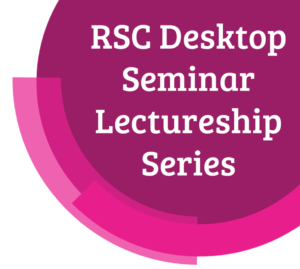 The RSC is proud to recognise exceptional scientists through our series of journal lectureships. In the past, our winners were given the opportunity to present their award-winning work at international conferences or meetings, but since 2021, we have been delighted to feature our winners in our free, virtual Lectureship series.
The RSC is proud to recognise exceptional scientists through our series of journal lectureships. In the past, our winners were given the opportunity to present their award-winning work at international conferences or meetings, but since 2021, we have been delighted to feature our winners in our free, virtual Lectureship series.










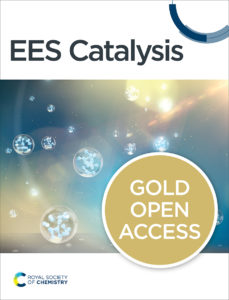
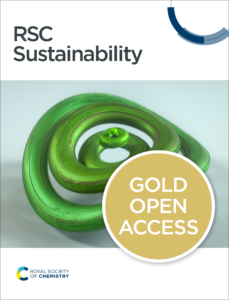
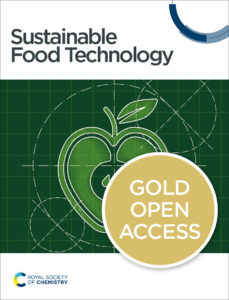


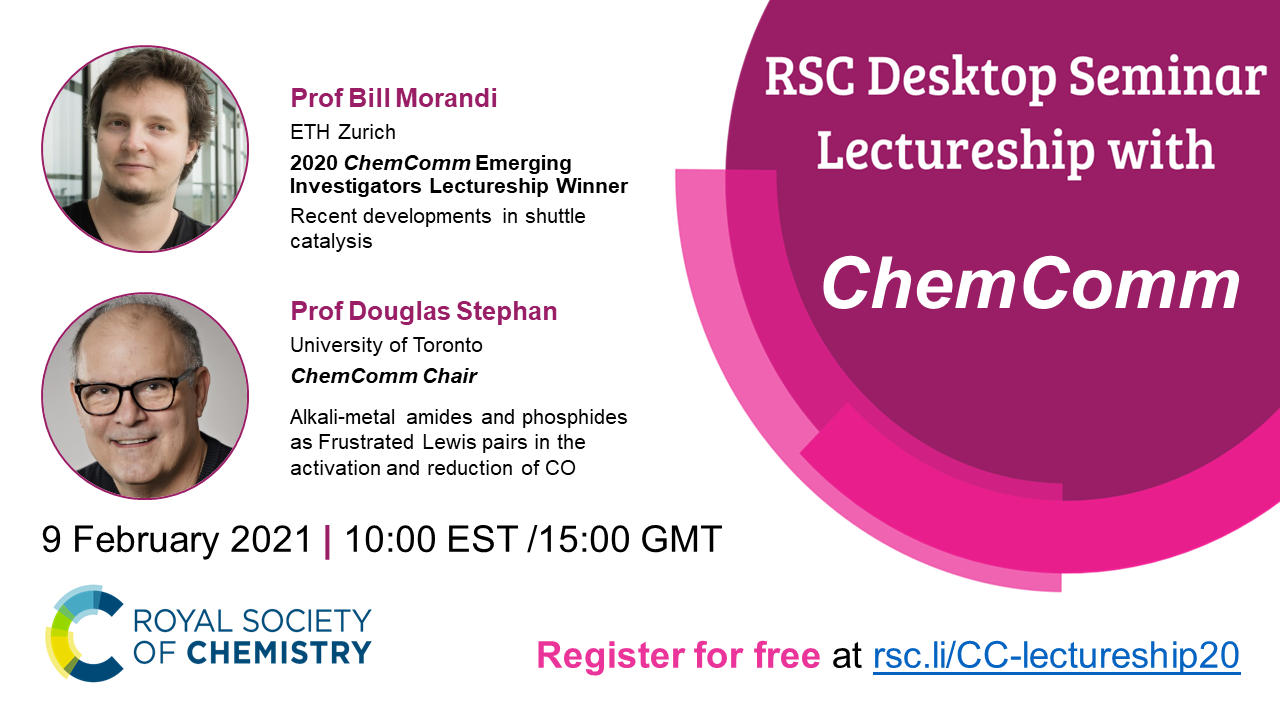
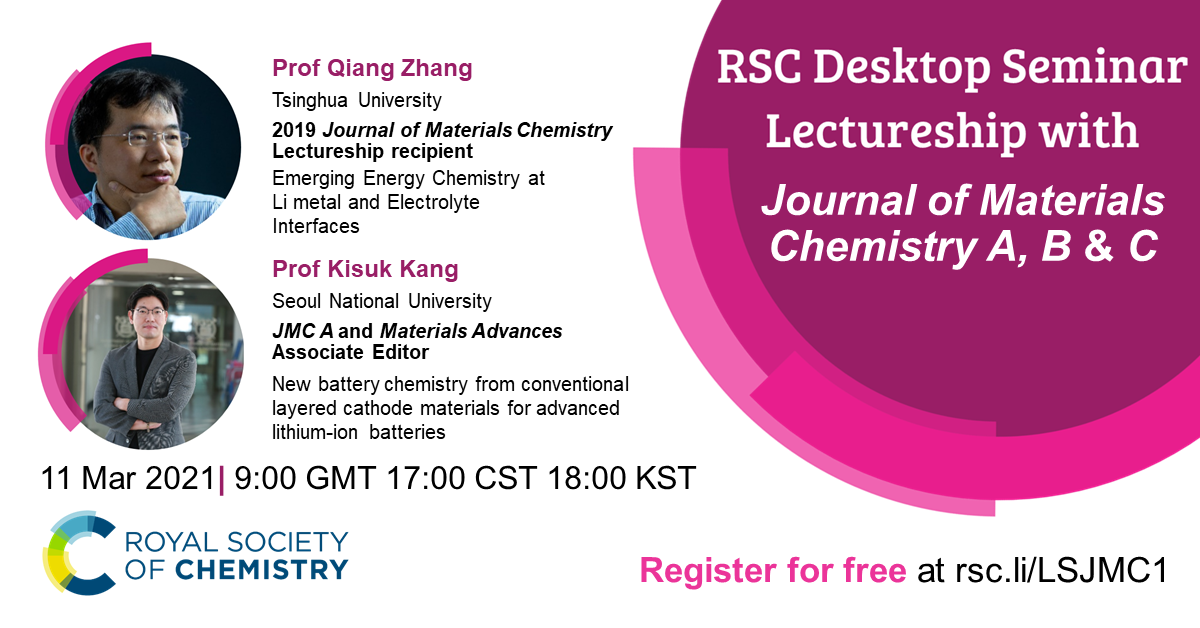
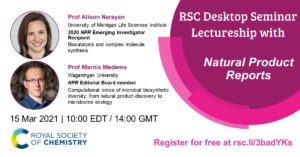
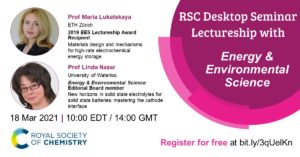
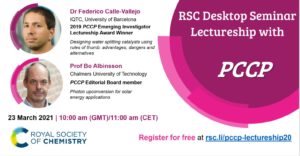
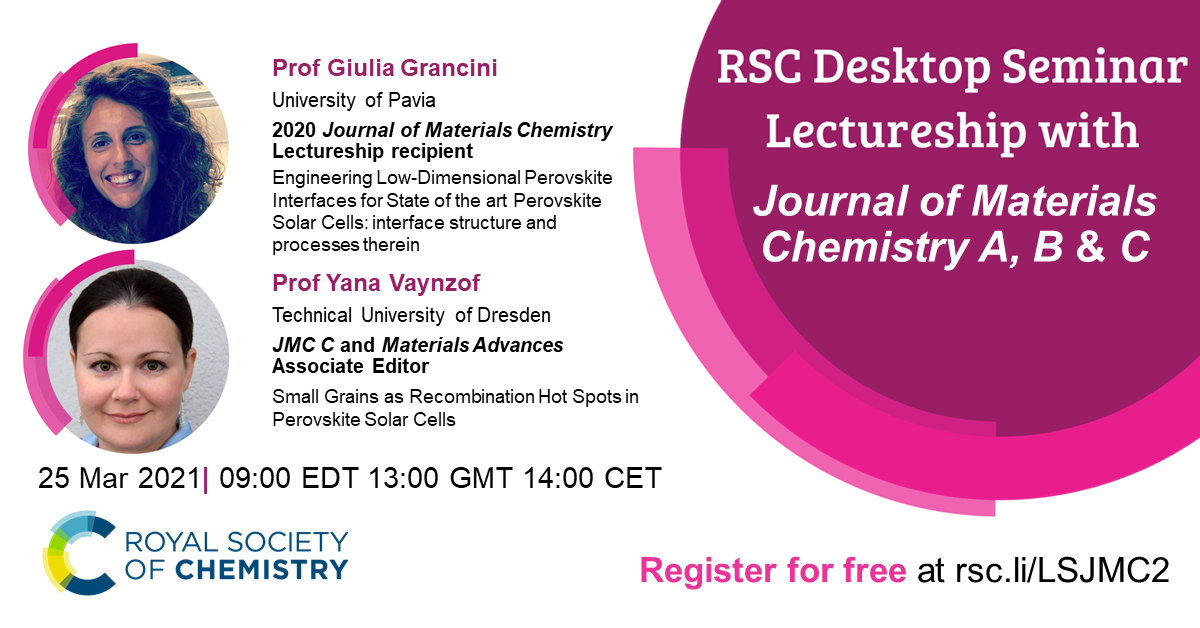
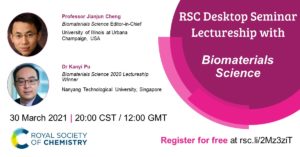
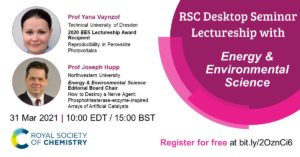
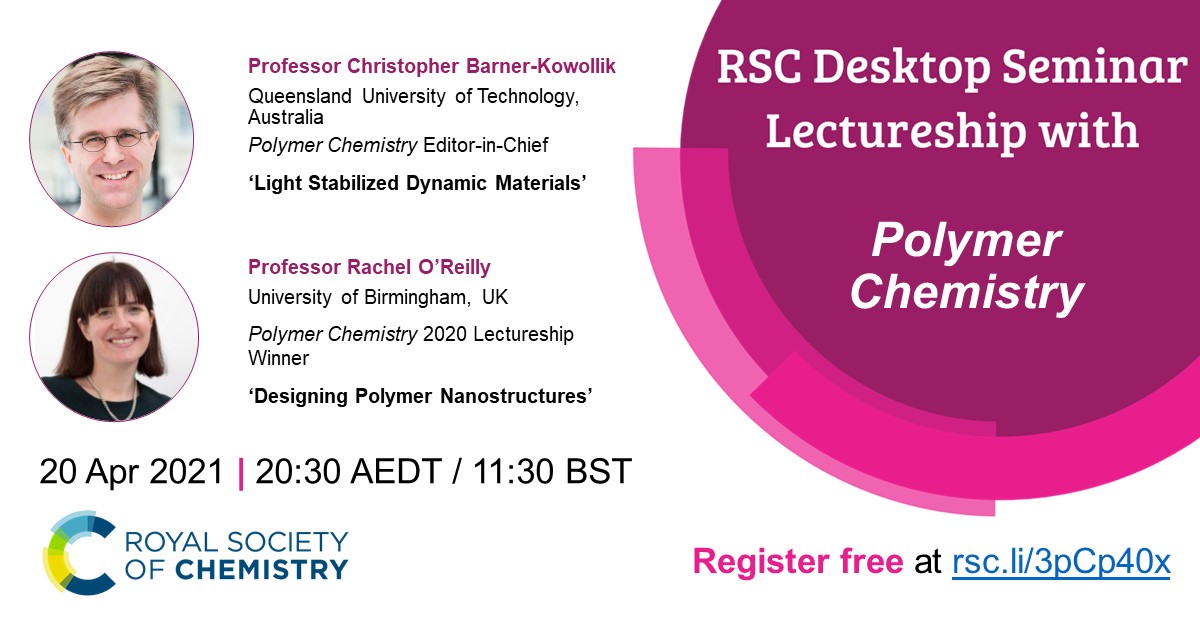
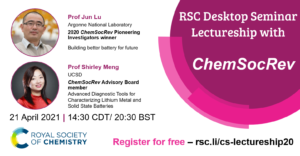
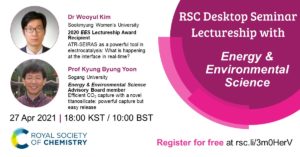
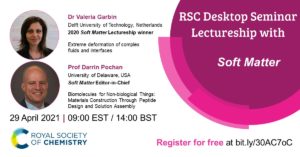
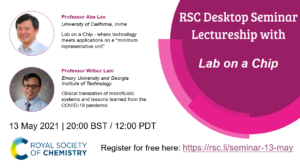

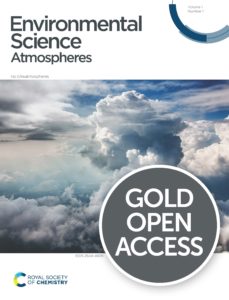
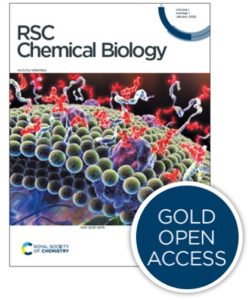 COVID-19 has rendered in-person events to be suspended or cancelled disrupting connections around the globe. The impact of these cancellations on the sharing of information and ideas, especially in the research landscape, has been dramatic.
COVID-19 has rendered in-person events to be suspended or cancelled disrupting connections around the globe. The impact of these cancellations on the sharing of information and ideas, especially in the research landscape, has been dramatic.